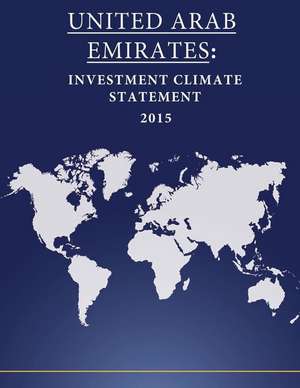United Arab Emirates
Autor United States Department of State Editat de Penny Hill Pressen Limba Engleză Paperback
| Toate formatele și edițiile | Preț | Express |
|---|---|---|
| Paperback (3) | 80.68 lei 3-5 săpt. | |
| – | 80.68 lei 3-5 săpt. | |
| CREATESPACE – | 81.74 lei 3-5 săpt. | |
| – | 93.60 lei 3-5 săpt. |
Preț: 80.68 lei
Nou
Puncte Express: 121
Preț estimativ în valută:
15.44€ • 15.95$ • 12.85£
15.44€ • 15.95$ • 12.85£
Carte disponibilă
Livrare economică 05-19 martie
Preluare comenzi: 021 569.72.76
Specificații
ISBN-13: 9781532888120
ISBN-10: 1532888120
Pagini: 26
Dimensiuni: 216 x 279 x 1 mm
Greutate: 0.09 kg
ISBN-10: 1532888120
Pagini: 26
Dimensiuni: 216 x 279 x 1 mm
Greutate: 0.09 kg
